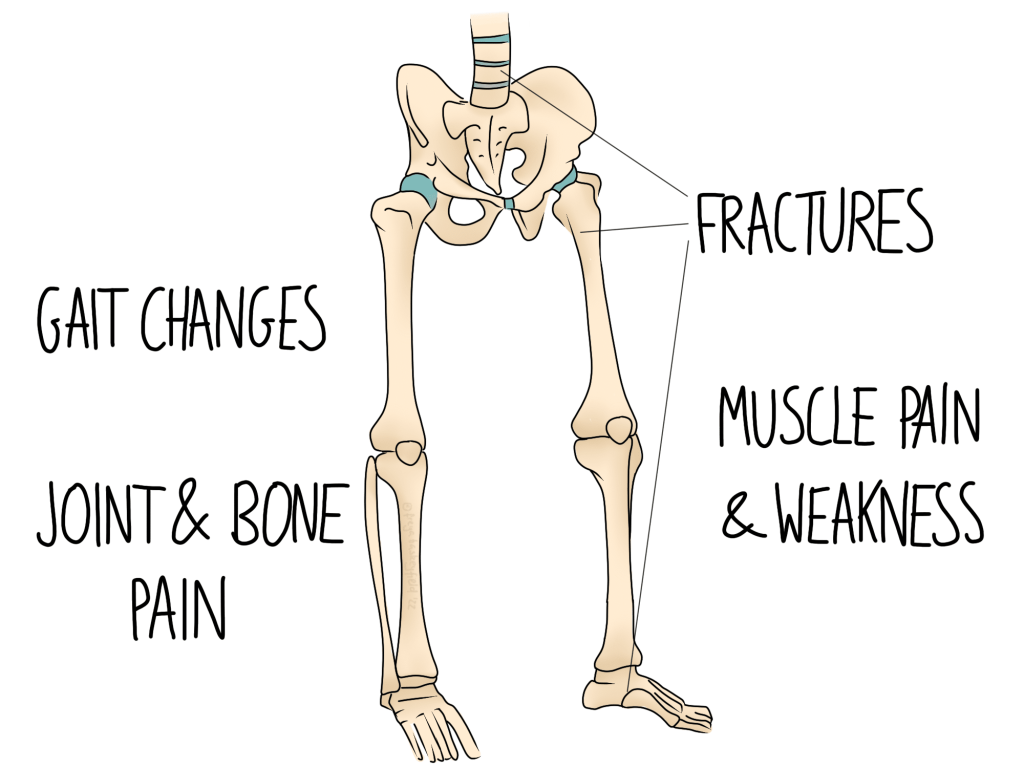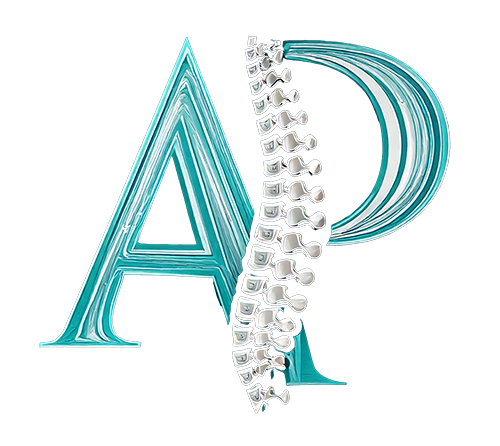An uncommon condition, osteomalacia causes a handful of symptoms that might bring a patient into clinic. They include aches and pains in muscles, joints, and bones, and changes to the way a person walks.

What is Osteomalacia?
When someone has osteomalacia, their bones begin to soften. This can cause pain in the bones, muscles, and nearby joints. These symptoms may in turn cause compensation elsewhere, leading to further discomfort. They can also lead to changes in gait (the way you walk). In extreme cases, the bones may fracture or visibly bow.
As osteopaths treat general aches and pains, we can expect that someone with osteomalacia may come to their osteopath for help. Symptoms may appear similar to fibromyalgia or sports injuries, so the first thing we need to do is to take a detailed case history. This will give us some more information to help us rule likely diagnoses in or out. We will then examine you to see how the body moves and feels, and combine the information to reach a conclusion.
What Causes it?
Bones are living tissue, and like any other, the body is constantly breaking down old tissue and replacing it. If the substances needed for repair are not adequate, the tissue is rebuilt incorrectly. In the case of osteomalacia, a deficiency in calcium causes the body to build softer bones.
A calcium deficiency is not always a case of simply ingesting too little calcium. Vitamin D is required for the body to absorb calcium. Up to half of the UK population is deficient in vitamin D, which is consumed in food and synthesised when sunlight hits the skin. Therefore, deficiency is higher in the winter when we expose our skin to less sunlight, and people with darker skin are more negatively affected. Government advice is to take a supplement throughout the autumn and winter to combat this.
Although they sound similar, this condition is quite different to osteoporosis or osteopenia. Here, rather than softening, the bones become less dense as the body breaks the inside of the bone down faster than it can rebuild it. This is more likely be associated with hormonal changes than a deficiency.
Children don’t develop osteomalacia- instead they develop rickets. Vitamin D supplements are recommended for children of all ages. Drops are available for babies, especially those who are breastfed, as formula is enriched with vitamin D.
Can Osteopathy Help?
Your osteopath’s job is to identify the cause of your pain. The most important thing we can do to help with osteomalacia is to identify it and advise you of the vitamin D public health guidance. We may also refer you to your GP if we think that further testing might be helpful.
We can help with lingering aches and pains, and changes to gait too. Some of these symptoms may be due to the body adapting to the weaker bones. A helping hand to calm the muscles down and get the joints moving properly again may be the last piece of your recovery.
Click here to book an appointment for your aches and pains in Leicestershire or Rutland.

